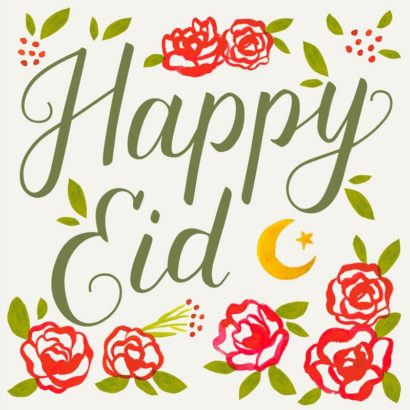The day immediately following the end of the holy month of Ramadan is called Eid-e-Fitr. In other words, it falls on the first day of Shawwal. It is one of the greatest Islamic festivals.

Eid-e-fitr is the Day of Thanksgiving to Allah, forgiving His servants the opportunity to fast and to worship Him in the month of Ramadan. On this Day, Muslims leave their jobs, wear clean clothes, offer special Eid Prayers, and after prayers go to visit one another and take part in festivities. Small children wear beautiful new clothes, and are very busy enjoying the festival. Their angelic faces beam with joy.
Islam wants that all Muslims, whether rich or poor, should enjoy Eid. It has, therefore, commanded all the well-to-do people to pay the ‘Zakat-e-Fitr’. This Zakat is paid on the very day of Eid-e-Fitr. It consists of 3 kilograms of one’s daily food or its equivalent in cash.
The payment of ‘Zakat-e-Fitr’ is obligatory upon every person who is adult, sane and free at the time of the sunset on the last day of Ramadan, and is also not dependent upon others for means of subsistence. If the person concerned is the head of a family, it is incumbent upon him to pay his own ‘Zakat-e-Fitr’ as well.
‘Zakat-e-Fitr’ is the right of the poor and the needy, and can be spent for those purposes only, for which Zakat, payable on property, is expendable. This includes helping the deserving people and building hospitals, bridges, schools, etc.
Nowadays, Zakat-e-Fitr’ is paid without any planning, with the result that the deserving people do not derive any suitable benefit from it. It would be better if the ‘Zakat-e-Fitr’ paid by all the people, is collected in one place and spent after proper planning, so that the condition of a good number of needy persons may improve.
Source: Shafaqna

